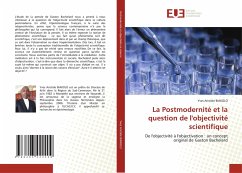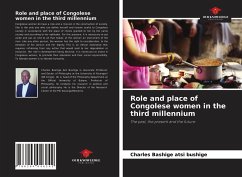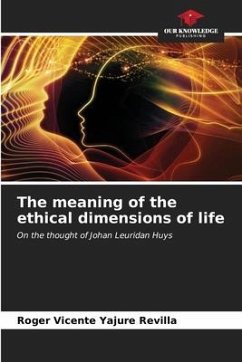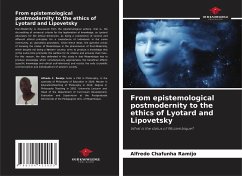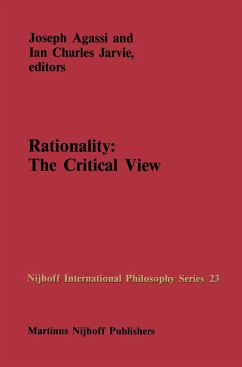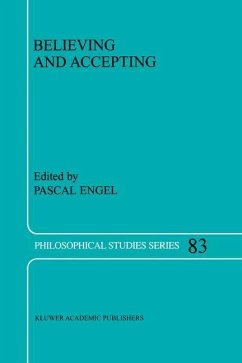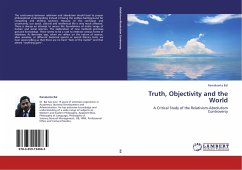
Postmodernity and the question of scientific objectivity
From objectivity to objectification: an original concept of Gaston Bachelard
Versandkostenfrei!
Versandfertig in 6-10 Tagen
47,99 €
inkl. MwSt.

PAYBACK Punkte
24 °P sammeln!
The study of Gaston Bachelard's thought has led us to consider the question of scientific objectivity in postmodern culture. Indeed, the French epistemologist, following the neopositivists, thinks that contemporary science does not have the philosophy that corresponds to it. He makes error a central phenomenon in the evolution of thought. He even rethought the notion of scientific phenomenon: what makes a phenomenon scientific is its deployment in and by a theoretical field, whether in observation or in experimentation. From then on, he shatters the whole traditional conception of scientific o...
The study of Gaston Bachelard's thought has led us to consider the question of scientific objectivity in postmodern culture. Indeed, the French epistemologist, following the neopositivists, thinks that contemporary science does not have the philosophy that corresponds to it. He makes error a central phenomenon in the evolution of thought. He even rethought the notion of scientific phenomenon: what makes a phenomenon scientific is its deployment in and by a theoretical field, whether in observation or in experimentation. From then on, he shatters the whole traditional conception of scientific objectivity. For him, there is no truth without rectified errors. Thus, science is essentially questioned because it is constructed. We have gone from immediacy to mediation. This mediation is both instrumental and social. Bachelard speaks then of objectivation, that is to say that in the scientific process, it is the subject himself who constructs his object. There is no object in itself. Hewanted to "give reason reasons to evolve". Will he have achieved this objective?



